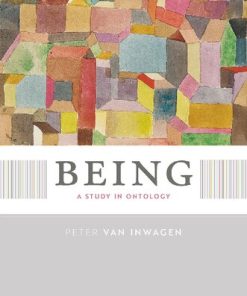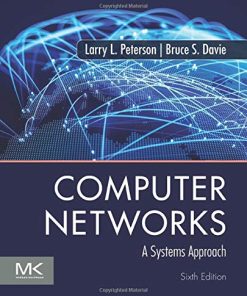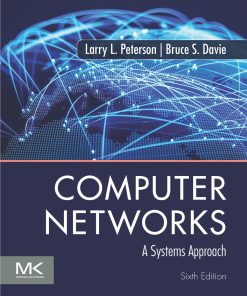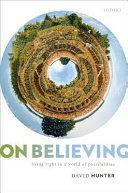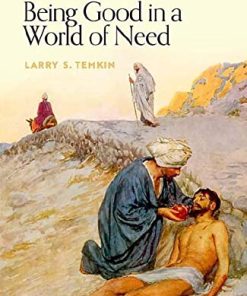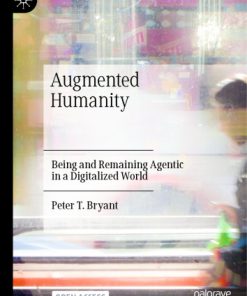Being Good in a World of Need 1st edition by Larry Temkin 0192666994 9780192666994
$50.00 Original price was: $50.00.$25.00Current price is: $25.00.
Being Good in a World of Need 1st edition by Larry S. Temkin – Ebook PDF Instant Download/DeliveryISBN: 0192666994, 9780192666994
Full download Being Good in a World of Need 1st edition after payment.
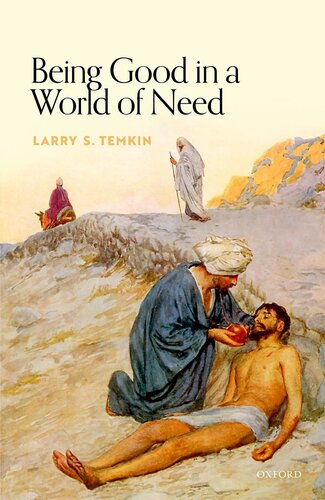
Product details:
ISBN-10 : 0192666994
ISBN-13 : 9780192666994
Author: Larry S. Temkin
In a world filled with both enormous wealth and pockets of great devastation, how should the well-off respond to the world’s needy? This is the urgent central question of Being Good in a World of Need. Larry S. Temkin, one of the world’s foremost ethicists, challenges common assumptions about philanthropy, his own prior beliefs, and the dominant philosophical positions of Peter Singer and Effective Altruism. Filled with keen analysis and insightful discussions of philosophy, current events, development economics, history, literature, and age-old wisdom, this book is a thorough and sobering exploration of the complicated ways that global aid may incentivize disastrous policies, reward corruption, and foster “brain drains” that hinder social and economic development. Using real-world examples and illuminating thought experiments, Temkin discusses ethical imperialism, humanitarian versus developmental aid, how charities ignore or coverup negative impacts, replicability and scaling-up problems, and the views of the renowned economists Angus Deaton and Jeffrey Sachs, all within the context of deeper philosophical issues of fairness, responsibility, and individual versus collective morality. At times both inspiring and profoundly disturbing, he presents the powerful argument that neglecting the needy is morally impermissible, even as he illustrates that the path towards helping others is often fraught with complex ethical and practical perils. Steeped in empathy, morality, pathos, and humanity, this is an engaging and eye-opening text for any reader who shares an intense concern for helping others in need.
Being Good in a World of Need 1st Table of contents:
1. Introduction
1.1 A Rich World with Pockets of Devastation
1.2 The Audiences for This Book
1.3 Methodological Remarks and Preliminary Comments
1.4 Intuitions
1.5 Terminology
1.6 The Assumption of Innocence
1.7 Effective Altruism
1.8 Overview of the Book
1.9 Final Remarks
2. Global Need: My Longtime Commitment and Earlier Views
2.1 A Lifelong Concern about the Needy
2.2 A Pluralistic Approach to the Needy—and the Ease of Giving
3. Singer’s Pond Example and Some Worries about Effective Altruism
3.1 Singer’s Pond Example and Two Variations
3.2 Support for Pluralism—Reasons to Worry about Strict Utilitarian Versions of Effective Altruism and Important Limits on the Pond Example’s Implications
3.3 Implications of Pond Examples for Non-Utilitarian Versions of Effective Altruism
3.4 Being Virtuous and Avoiding One Thought Too Many
3.5 Agent-Relative Duties to Aid and the Ethical Significance of Direct Confrontation with Another in Need
3.6 Dramatic Rescues, Large-Scale Disasters, and Effective Altruism
3.7 Effective Altruism, Personal Involvement, and Integrity
3.8 Morally Problematic Relations in Aid Giving
3.9 Personal versus Political Domains
3.10 Concluding Remarks
4. Direct versus Indirect Aid
4.1 Ground Clearing: Community Membership, Proximity, and Cultural Differences
4.2 Expert Observers and Intervening Agents7
4.3 Saving Lives versus Supporting Effective Aid Organizations
4.4 Summary
5. The Dark Side of Humanity, Part I: Worries about Internal Corruption
5.1 The Dark Side of Humanity
5.2 Two Responses to the Worry about Internal Corruption and Why They Are Problematic
5.3 See No Evil, Hear No Evil, Speak No Evil
5.4 Partners in Crime, a Concluding Remark
6. The Dark Side of Humanity, Part II: Worries about External Corruption
6.1 The Worry about External Corruption
6.2 Two Responses to the Worry about External Corruption
6.3 Learning to Live with Corruption?
6.4 Brief Summary and Concluding Remark
7. The Dark Side of Humanity, Part III: Where Evil Walks
7.1 Social Injustice, Unjust “Victims,” and the Beneficiaries of Suffering
7.2 Dealing with the Devil
7.3 The Problem of Dirty Hands
7.4 Blurry Lines
7.5 Goma
7.6 Summary
8. Marketplace Distortions and Human Capital
8.1 Global Health and the Problem of Brain Drain
8.2 Global Aid and the Problem of Internal Brain and Character Drain
8.3 Global Aid and the Problem of External Brain and Character Drain
8.4 Summary and Final Remark
9. Model Projects and the Difficulty of Predicting Future Success
9.1 The Uniqueness of Each Circumstance and Unforeseen Developments
9.2 The Problem of Scaling Up
9.3 The Rice School—A Cautionary Tale
9.4 An Effective Altruist’s Response and Some Reasons to Take It with a Grain of Salt
9.5 Summary
10. Ethical Imperialism: Some Worries about Paternalism, Autonomy, and Respect
10.1 Remembering Colonialism
10.2 Some Worries about Thinking We Know Better—Even If We Are Right
10.3 Money Talks
10.4 Final Remark
11. On the Relation between Aid, Governance, and Human Flourishing: Deaton’s Worry
11.1 Has Singer Done More Harm than Good?
11.2 On the Importance of Good Governance
11.3 Ways in which Aid Efforts May Undermine Good Governance
11.4 Jeffrey Sachs and the Millennium Villages Project
11.5 Summary and Some Suggestive Data
12. Individual versus Collective Rationality and Morality: A Troubling Possibility
12.1 One Natural Response to Deaton’s Worry: The Importance of Effective Altruism
12.2 Each/We Dilemmas: The Possibility of Conflict between Individual and Collective Rationality
12.3 Each/We Dilemmas: The Possibility of Conflict between Individual and Collective Morality
12.4 The Plausibility of Anti-Additive-Aggregationist Principles
12.5 How Anti-Additive-Aggregationist Principles Give Rise to Consequentialist Each/We Dilemmas
12.6 Is Good Communication a Solution for Consequentialist Each/We Dilemmas?
12.7 Reconsidering Deaton’s View—A Troubling Possibility
12.8 Challenging Two Assumptions
12.9 Summary
13. Further Objections to Deaton’s Worry and Some Responses
13.1 Singer’s Response to My Defense of Deaton
13.2 Challenging the Scope of Deaton’s Worry
13.3 A Deontological Gloss on Deaton’s Worry
13.4 A Pluralist Response to Deaton’s Worry
13.5 Final Remarks Regarding Deaton’s Worry
14. Responsibility and Fairness: Further Support for a Pluralistic Approach to Global Aid
14.1 Pogge and the Importance of Responsibility
14.2 Fairness
14.3 Final Thoughts
15. Taking Stock, Clarifications, and Further Thoughts
15.1 Reassessing Singer’s Approach to Global Need
15.2 Reassessing Effective Altruism’s Approach to Global Need
15.3 Effective Altruism as a Clarion Call to Practical Action
15.4 Important Clarifications and Caveats
15.5 Taking Expected Utility Theory Seriously
15.6 Summary
16. Conclusion
16.1 Summary
16.2 How Dare I Write This Book
16.3 Paths Needing Further Exploration
16.4 Whither from Here?
People also search for Being Good in a World of Need 1st:
why is being a good person not enough
when your best isn’t good enough for others
why being good is not enough
be the good in the world quote
being good is
Tags: Being Good, World of Need, Larry Temkin, devastation
You may also like…
Computers - Networking
Computer Networks 6th Edition Larry L. Peterson & Bruce S. Davie
Accounting
Politics & Philosophy - General & Miscellaneous Philosophy
Politics & Philosophy - Anthropology
Social Science
Politics & Philosophy - Social Sciences
Augmented Humanity: Being And Remaining Agentic In A Digitalized World 1st Edition




